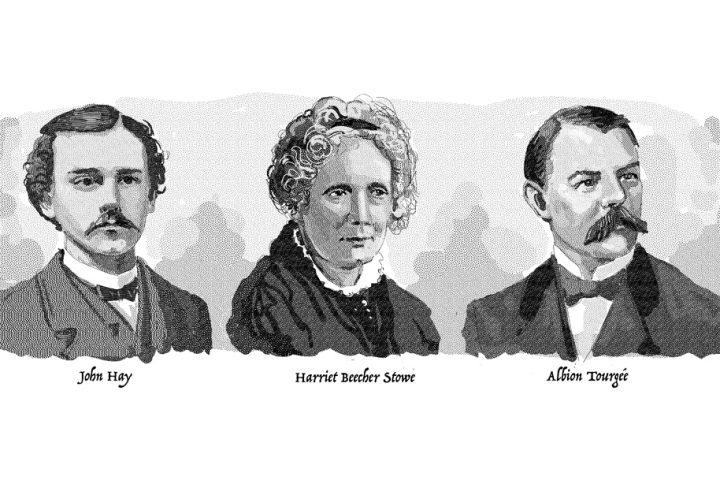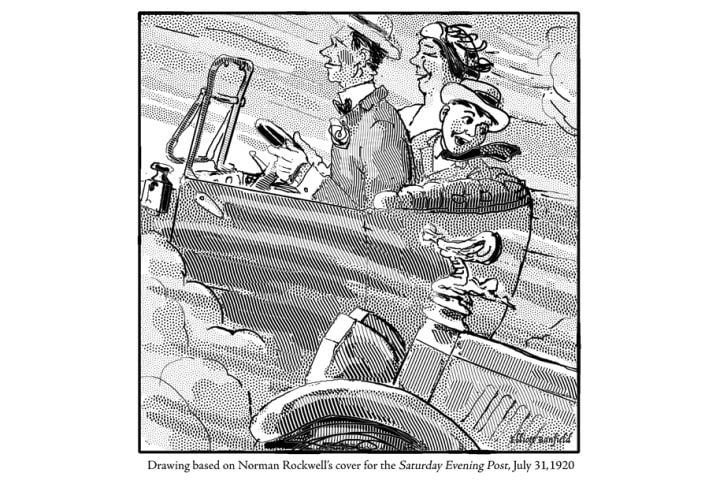Books Reviewed
The thesis of Timothy Sandefur’s slim new volume is that America is slipping into, as the title has it, The Permission Society—“a society,” he explains, “in which our choices are increasingly subject to government pre-approval.” The various permits or licenses one must secure before building a house, starting a business, driving a car, and so on, are a “dangerous trend.” The “heart of darkness in all permit systems,” he warns, “is that they regard government control as the norm and freedom as the exception.” The Vice President of Litigation at the Goldwater Institute and an adjunct scholar with the Cato Institute, Sandefur wants to revive the “nuisance” system, in which, say, instead of restaurant inspections to ensure cleanliness, we rely on market forces like lawsuits by sick customers. As a libertarian, he regards virtually all political forays into the economy as errors bound to stifle innovation and invite corruption.
Sandefur’s tone is too thoughtful to be fairly labeled a screed, but also too ideological to be called an equitable assessment of law and policy. Most issues, for him, are cut and dried, open and shut. Were it novelized, Ayn Rand-style, his book might be titled Zero Shades of Gray. He also notes that “earlier versions” of parts of his book appeared in scholarly journals, which may explain the longueurs in which he swats down as a foil for his own views obscure academic theories at lengths far greater than needed.
The Permission Society’s most persuasive passages are its real-world examples. For instance, Sandefur describes curious laws in Kentucky and Missouri—which he litigated—that let moving companies block licenses for new competitors by convincing regulators that the industry was crowded enough. The fact that a third of Americans (I’ve seen even higher figures) need authorization to pursue their careers shows that we have transformed a system of consumer protection into a system of incumbent protection. Sandefur makes powerful cases, too, for deregulating marijuana and for giving the terminally ill the right to try drugs that are still unapproved by the Food and Drug Administration.
* * *
The problem is that he sees scarcely any limits. His label for most restrictions on liberty is “prior restraint,” a legal term he uses metaphorically, since the phrase actually has only ever referred to laws that allow censorship of free speech. Yet Sandefur sees “prior restraint” in virtually every zoning restriction or gun regulation—faulting the late Justice Antonin Scalia for not going far enough to crush such restraints—and he compares the campus due-process parodies inflicted on those accused of unwelcome sexual advances to the legalized murders of black “rapists” under Jim Crow. At one point he summons James Madison himself to denounce as “nothing short of censorship” architectural “design review,” which some cities impose on construction in order to ensure an orderly civic look.
From this and other instances one learns that, for Sandefur, there are two eras of history: the founding era, exemplified in the supposed libertarianism of the Declaration of Independence, and the Progressive era, after the fall. But invoking the framers seems to me to require accepting their recognition (made even by that original Cliven Bundy, Thomas Jefferson) of a distinction between “liberty” and “license,” and the balancing this distinction requires, always, between the rights of the one and the rights of the many, which the founders mostly left to democracy. Sandefur never defines the “ruling class” of his subtitle, but he seems generally to mean the lesser orders of officialdom. Yet these people, last I checked, remain subject to popular control, if citizens truly wish to exert that control. It just seems instead that most Americans value, say, the comfort of seeing a permit in an elevator establishing that it passed a safety test, instead of the real but somehow unsatisfying assurance that, if they are crushed, their estate can always sue.
* * *
Sandefur expresses concern about the American character. “[I]n the end,” he writes, “the only way to stop America’s descent into a Permission Society is for citizens to realize…[that] we must not allow politicians to treat our freedoms as gifts they bestow upon us out of their magnanimity.” That’s well put. But as his own book shows, it is judges, usually federal ones, on whom Sandefur relies to arrest our descent. He makes a living of asking these officials—who, in their power, camaraderie, and untouchability, more closely approach a “ruling class” than anyone else Sandefur describes—to enforce our sacred rights in concrete terms. He calls it “sad” when a court upholds a law he considers offensive and hails court invalidations of such laws as milestones of freedom. At bottom, then, this book is a plea for more aggressive court intervention. (In this it echoes other intelligent libertarian litigators like Clark Neily in his more tempered 2013 book, Terms of Engagement: How Our Courts Should Enforce the Constitution’s Promise of Limited Government). Yet the lawyers who earn Sandefur’s praise—Justices James Wilson, Robert H. Jackson, and Scalia—all feared the judicialization of American life as an evil that would shrivel our spirit of self-governance. Sandefur’s cure, to my mind, entails a yet worse ill: a free society that needs judges to save it from itself.



